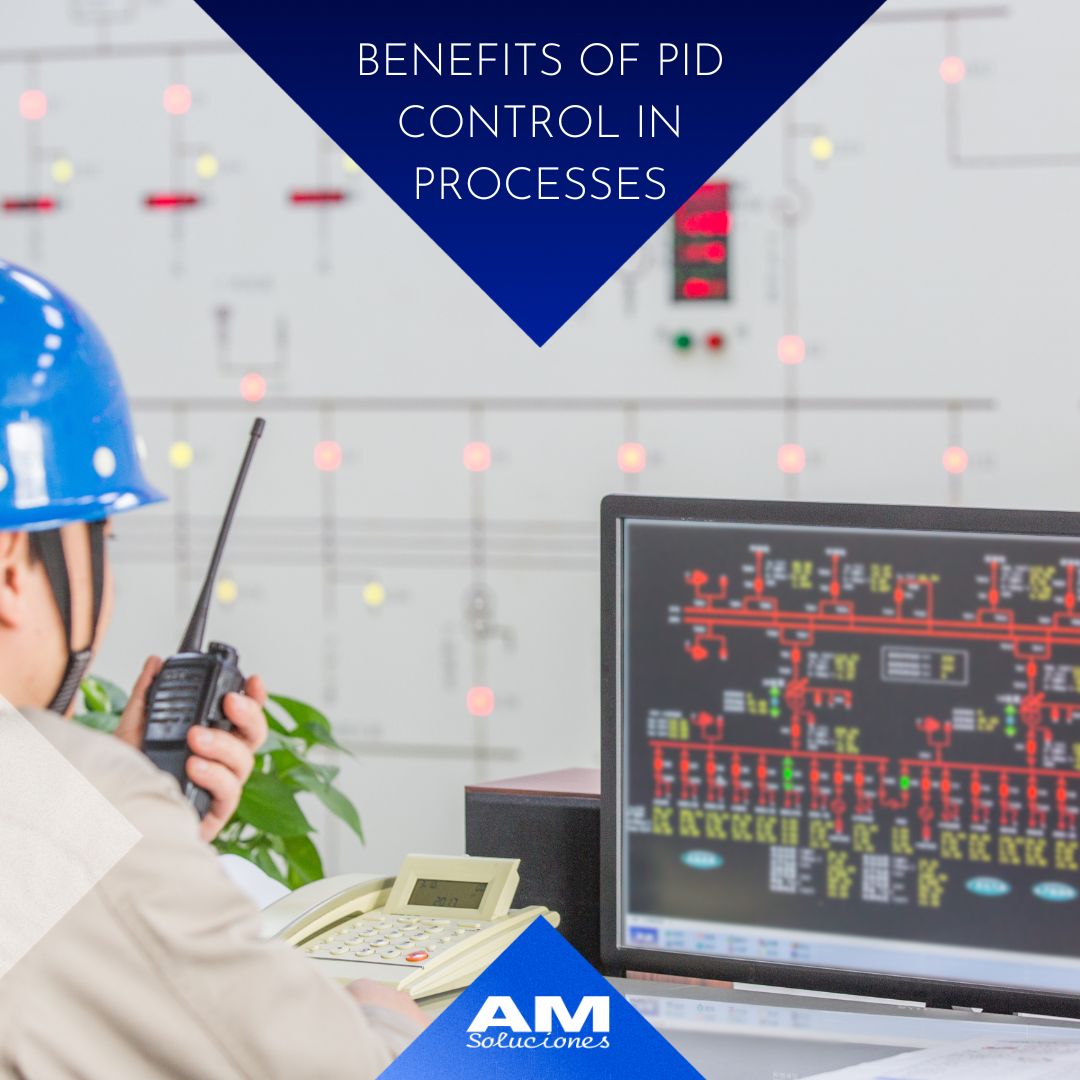
In the world of automation and process control, PID (Proportional, Integral and Derivative) control is widely used thanks to its multiple benefits. In this blog, we will explore how PID control can increase the stability and efficiency of industrial processes. From the chemical industry to food production, this system has proven to be a valuable tool for optimizing performance and reducing failures in control systems.
Join us on this journey to discover the benefits of implementing PID control in your processes!
Process stability is a crucial aspect in any control system. PID control provides an effective solution to maintain stability in industrial processes. Let's look in more detail at how each component contributes to achieving this stability.
Proportional action is the main part of PID control. Adjusts the output in proportion to the current error, which is the difference between the desired value (set point) and the actual measured value. When the error is large, proportional action applies a more significant correction. This helps quickly bring the process closer to the desired value, reducing error.
Comprehensive action takes into account past errors accumulated over a period of time. Helps fix consistent or persistent errors that cannot be eliminated with proportional action alone. By summing past errors, integral action gradually reduces the accumulated error, leading to higher process accuracy and stability.
Derivative action is based on the rate of change of the error. It allows the controller to anticipate process trends and adjust output accordingly. If there is a rapid change in error, the derivative action responds with a rapid correction, thus avoiding excessive oscillations. It also helps reduce response time and avoid delays in the process.
When these three components are combined in a PID controller, improved stability is achieved. Proportional action acts immediately to reduce the current error, integral action reduces accumulated error over time, and derivative action anticipates and corrects rapid changes in error.
PID control also offers high precision in process control. By constantly adjusting the output based on the error and its history, the controller can keep the process in an optimal state. This is especially useful in processes where a very high level of precision is required, such as pharmaceutical manufacturing or the production of electronic components. By minimizing errors and maintaining process variables within desired limits, PID control ensures product quality and uniformity.
It is highly adaptable to a wide range of processes. It can be used in control systems for temperature, level, pressure, flow and many other variables. In addition, it is possible to adjust the parameters of the PID controller to adapt to the specific characteristics of each process. This means that PID control can be implemented in different industries and applications, providing consistent benefits in each case.
The quick response capability of PID control is another important benefit. The controller can continuously adjust the output based on process variations, allowing rapid correction of any deviations. This is especially valuable in processes that undergo rapid change, such as in small-batch production or in situations where demand is constantly changing. PID control ensures that the process remains at its desired setpoint, even in the face of unforeseen changes.
It can also contribute to the energy efficiency of processes. By keeping process variables within established limits, wasted energy due to overfitting or inefficiencies is avoided. Additionally, the ability of PID control to adjust the output based on the rate of change of the error (derivative part) allows for fast and accurate response, which in turn reduces power consumption.
Considering all of these benefits, it is no surprise that PID control is widely used in a variety of industries and applications. By leveraging the capabilities of PID control, companies can improve productivity, reduce errors, and maintain a high level of quality in their processes.
At AM Soluciones we offer you this, and many more services to help you increase the efficiency of your industrial systems.